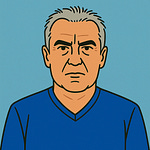In this episode, we sit down with political scientist Lamprini Rori to unpack Greece's unexpected journey from the brink of collapse to becoming one of Europe's more stable democracies. Dr. Rori, who teaches at the University of Athens, offers an insider's perspective on how Greece defied all predictions of democratic breakdown despite facing conditions far worse than countries that did slide into authoritarianism.
Our conversation reveals the unique character of Greek universities, where every political party—from New Democracy to the Communist Party—maintains active student organizations that serve as training grounds for future political elites. With 70,000 students at Athens University alone (though many are "eternal students" who never graduate), these institutions reflect Greece's polarized but vibrantly pluralistic political culture. Unlike their Western counterparts dominated by left-liberal consensus, Greek universities host the full spectrum of political opinion, creating both ideological engagement and problematic clientelism.
We discuss Greece's dramatic shift on immigration, with Rori giving us advance notice of the government's then-imminent decision to refuse all asylum applications from those entering illegally—a move that would prove controversial but reflects broader European anxieties. The conversation explores how Prime Minister Mitsotakis's New Democracy party has maintained power for seven years not through charisma but through technocratic competence, offering Greeks something they hadn't experienced in decades: predictable, stable governance.
Dr. Rori helps us understand why Greece didn't follow Hungary or Turkey's path toward illiberal democracy despite having every reason to: economic devastation, national humiliation through troika-imposed austerity, youth unemployment near 20%, and the rise of Golden Dawn. Perhaps it was EU oversight that kept certain red lines from being crossed, or the bitter memory of Syriza's betrayal when they promised revolution but delivered even harsher austerity. Or maybe, as our conversation suggests, sometimes a boring technocrat is exactly what a traumatized democracy needs to heal.









